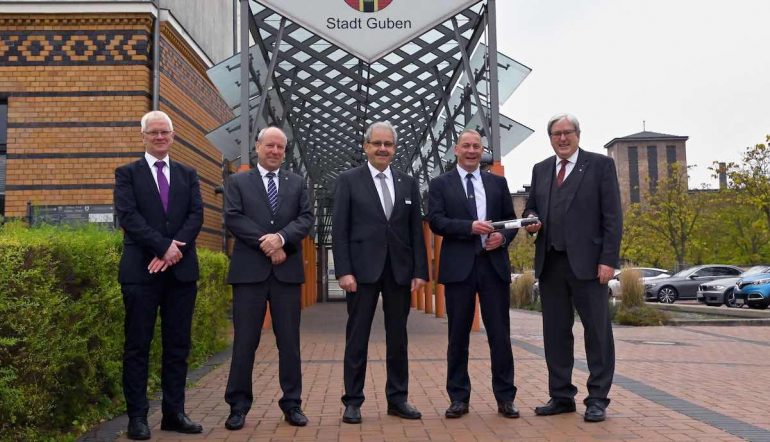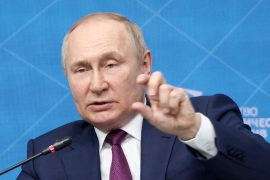Meanwhile, the state of Brandenburg has managed to get its name behind the factory in its area, at least in official mentions, which Tesla CEO Elon Musk previously referred to as “Giga Berlin.” Most recently, the “Gigafactory Berlin-Brandenburg” actually flashed across the screen at a festival held at Tesla’s campus last Saturday, and Musk used the longer form as well. And as the Tesla hype ended, Brandenburg’s economics minister Jörg Steinbach was able to announce another successful deal for the state.
Cleantech company Tesla as partner?
Canadian company Rock Tech Lithium will build Europe’s first converter for the production of battery-compatible lithium hydroxide in Gubain, the minister wrote on Twitter on Monday. To this end, he published a photograph of himself and other officers under the coat of arms of the small town in the Far East of Brandenburg. And as Steinbach explained in a press release, this means: With Tesla, BASF’s planned cathode production in Schwarzweide and relocation from Canada, the state will become the first region in Europe in which the entire electric car value chain starts with raw materials. . Processing until the finished vehicle is received.
First, Rock Tech bought a plot of about 12 hectares with good rail connections in the Guben-Sud industrial area for 1.1 million euros, company announced itself. A converter plant is to be commissioned there in 2024, which includes all phases of lithium refining. The raw material itself comes from a mine in Canada, from where it is to be brought by ship and rail. Rock Tech describes itself as a cleantech company and announces that by 2030, about 50 percent of the raw materials it uses will be derived from battery recycling.
Lithium for 500,000 electric cars per year
According to the announcement, up to 470 million euros will be invested in Guben and 160 new jobs will be created at the facilities. Rock Tech writes that the planned production volume is 24,000 tons of lithium hydroxide per year – enough for the batteries of about 500,000 electric cars.
If any of this is intended for Tesla, the notice doesn’t say so, but it does. Because the company also wants to produce its batteries at its Gigafactory just 100 kilometers away in Grünheide – as CEO Musk pointed out at his Giga-Fest, at least 5,000 electric cars per week by the end of 2022. This is earlier than Rock Tech claims to be able to deliver, but should be higher than other customers if Tesla is already served by 2024: annual battery life, according to a recent study. A total of about 1 terawatt hour of production capacity is planned in Europe by 2030.

Devoted web advocate. Bacon scholar. Internet lover. Passionate twitteraholic. Unable to type with boxing gloves on. Lifelong beer fanatic.





